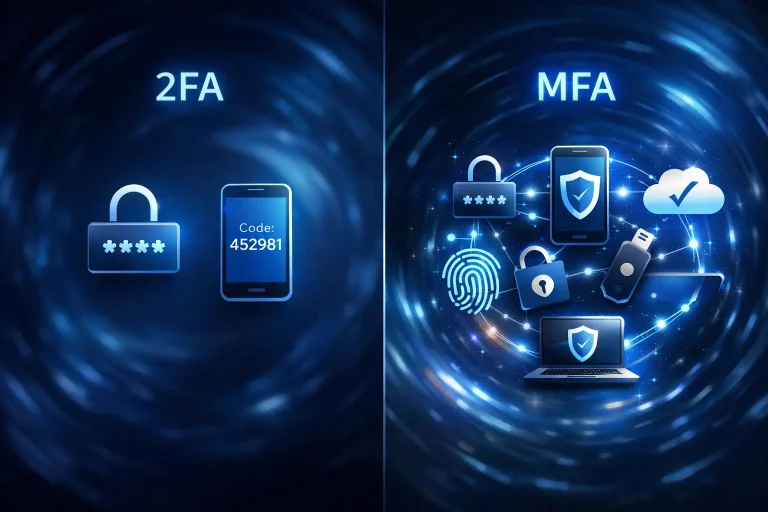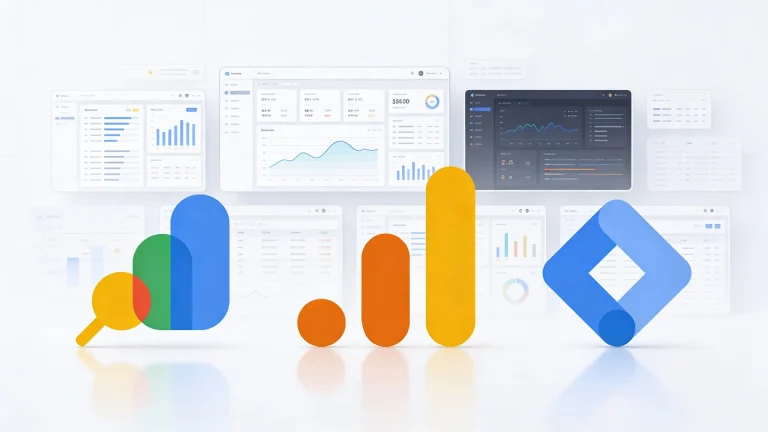Digital security has become a key challenge for business owners and management. Just a few years ago, antivirus for companies was mainly associated with protecting computers against viruses and Trojans. Today, the range of threats is much wider – it includes ransomware that locks down entire systems, phishing aimed at office workers, as well as data leaks that can expose the company to serious financial and image losses.
Additionally, the realities of remote and hybrid work have meant that corporate data is processed not only in the office but also in employees' homes, on laptops and mobile devices. This increases the risk of attack and makes it necessary to carefully select antivirus software for business is no longer an option, but a necessity.
In this article we will look at the best antivirus for businesses in 2025 – both free and paid. We will analyze them effectiveness, features, costs and performance impact, and we'll show you which solutions are best for small and medium-sized businesses. We'll also point out the pitfalls of free alternatives and when it's worth investing in a full-fledged business security system.
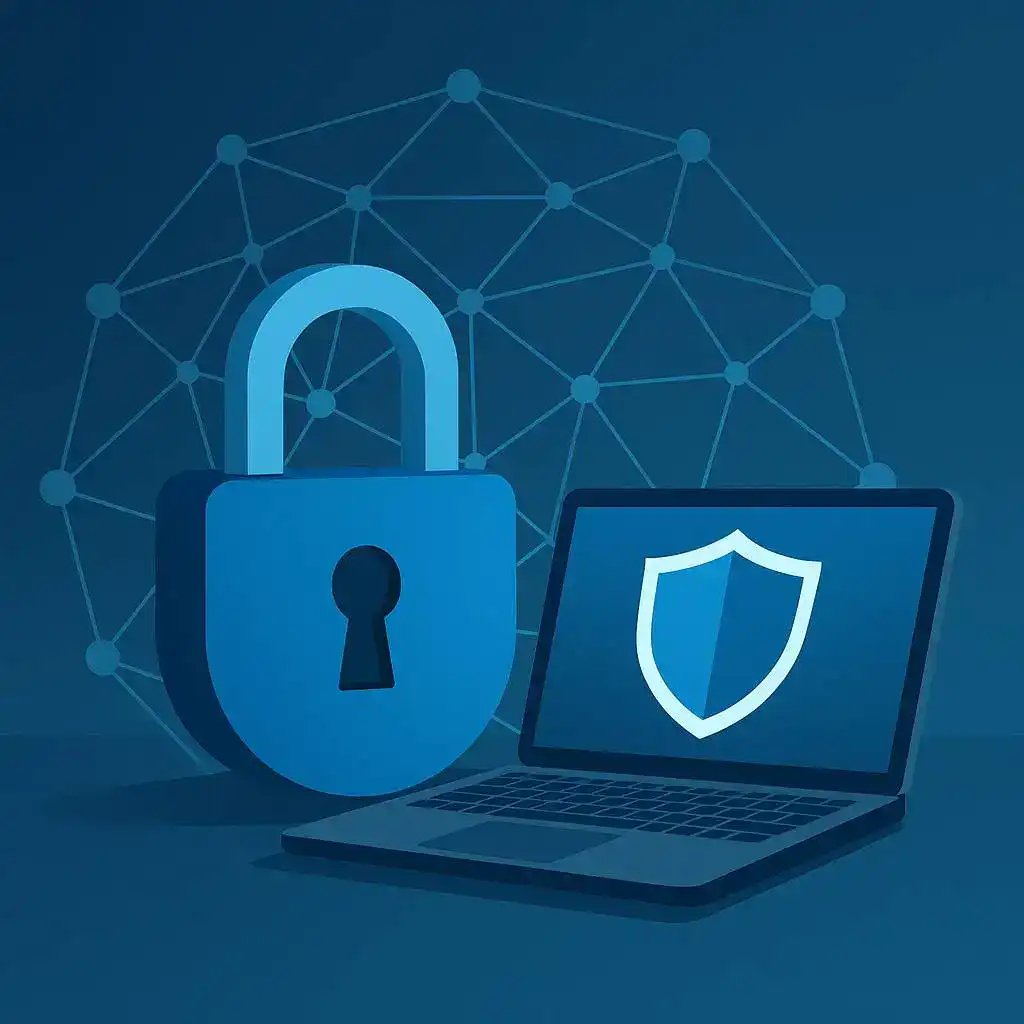
Criteria for selecting a business antivirus
Choosing the right one antivirus for companies It shouldn't be a hasty decision. Owners of small and medium-sized businesses often base their decisions solely on license price. However, this is only one piece of the puzzle. The wrong solution can burden employee computers, hinder work, or—worse still—provide insufficient protection in the event of a real attack. Therefore, it's worth taking a broader look and analyzing several key criteria.
Effectiveness of protection
The most important parameter. Effective antivirus program for business It must deal not only with classic viruses, but also with phishing, ransomware, and other zero-day threats. It's worth paying attention to independent tests (e.g., AV-Test, AV-Comparatives), which demonstrate real effectiveness in detecting and blocking attacks. A good solution is one that achieves results close to 100% while also reducing the number of false positives.
Impact on computer performance
Antivirus that's too heavy can slow down your computer and reduce the productivity of your entire team. Therefore, it's crucial that the software you choose offers effective protection while minimizing CPU and memory usage.
Additional functions for business
Paid solutions differ from free ones primarily in their functions:
• Central management console – the administrator can check the protection status of all computers in the company with one click.
• Reports and logs – necessary in the event of a GDPR or ISO audit.
• Patch management – automatic patches for the system and applications.
• VPN and mobile protection – useful for companies with remote and hybrid work.
It is these features that determine whether an antivirus can be considered a solution “for businesses” and not just “for home.”
Cost and licensing
A common mistake is to compare the price of a single license alone. Companies that prioritize cost optimization and require business continuity must have their systems under control – how many employees use computers, and whether server and mobile device licenses are also required. It's also important to consider whether the license includes technical support or whether it must be purchased separately. In practice, a well-configured system can pay for itself faster than you expect – for example, by avoiding downtime costs.
Technical support and SLA
Small businesses often lack a dedicated IT department. Therefore, it's crucial that the chosen solution offers quick access to technical support, preferably in Polish. Paid antivirus systems offer SLAs (Service Level Agreements), ensuring a guaranteed response time. This is especially important for businesses in the financial or service sectors, where every hour of downtime translates into significant losses.
Good business antivirus It's not just a "virus removal program." It's a whole ecosystem of features that protect company data and ensure business continuity. If you're not sure which solution is best for your business, you can count on our help – we offer IT services, IT support and IT consulting for companies in Warsaw and the surrounding area.
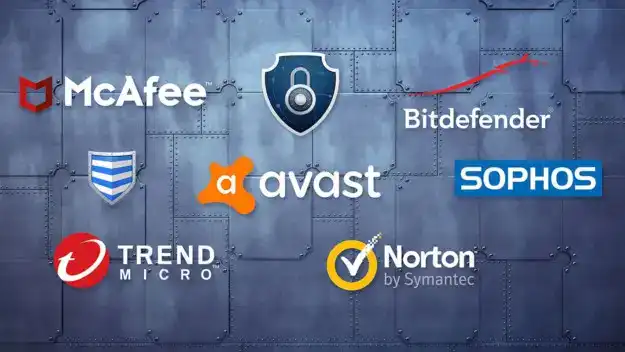
Free antivirus for businesses – is it enough?
Many small business owners start by asking: Is free antivirus enough to protect company data? This is natural – the costs of running a business are high, so if something can be secured without additional expenses, it often seems attractive. However, free solutions have both advantages and significant limitations.
Microsoft Defender – built-in protection in Windows
The most popular free solution in business is Microsoft Defender, the built-in antivirus in Windows 10 and 11. Its main advantage is that it doesn't require installing additional software or purchasing a license. It's performing increasingly well in tests by independent labs, effectively blocking viruses, phishing, and basic forms of ransomware.
Defects? The free version lacks a central console, limited reporting, and lacks advanced management capabilities across a larger corporate network. In practice, this means that in a company with a dozen or so computers, the administrator must check each one individually.
Avast Free and AVG Free – popular alternatives
Avast and AVG are among the most popular free antivirus programs on the market. They offer decent protection against common threats, as well as basic additional features such as web and email scanning.
Where does the problem arise? Free versions lack technical support and central management. Furthermore, Avast has been embroiled in data privacy controversies in recent years, a wake-up call for companies seeking to protect confidential business information.
Bitdefender Free – minimalism and simple protection
Bitdefender Free is another option often chosen by home users. It offers high threat detection rates, and its greatest advantage is its simplicity – it installs and operates virtually maintenance-free.
Weakness? Lack of business features. There are no dashboards, reports, or additional security tools that are useful in businesses, such as external device control (e.g., flash drives) or data encryption.
What are free antiviruses missing?
While free programs can provide solid protection for the home user, in a business context their limitations are very clear:
• Lack of central management – the administrator has no control over the entire network of computers.
• No reports or logs – this makes it difficult to meet GDPR requirements and security standards.
• No technical support – in case of problems, the company is left alone to deal with the problem.
• No advanced features – such as EDR (incident detection and response), patch management and data encryption.
Free antivirus solutions can be a good starting point for micro-businesses (1-3 employees) that don't process sensitive customer data. However, for most small and medium-sized businesses, their limitations will prove too severe. If you want to ensure your business operates securely and in compliance with regulations, it's worth considering paid solutions.
Every day, we help our clients assess whether free antivirus is sufficient or whether it's better to invest in full-fledged business software. IT support and IT services We advise, implement and configure security systems so that they actually protect company data.
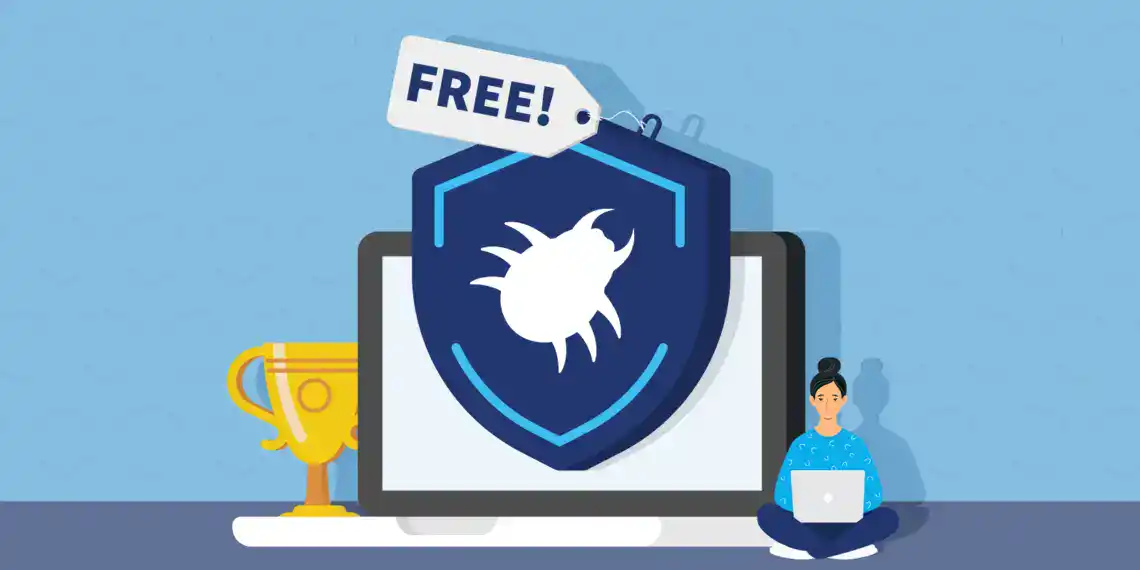
The best paid antivirus for businesses
This section provides specific analyses and recommendations for the most noteworthy paid antivirus solutions. I include key features, pricing (where available), and comparisons to help you choose the best program for your business.
Norton Business / Norton 360 Deluxe / Norton Antivirus
Advantages: Complete protection suite – antivirus, firewall, safe browsing, anti-scam tool, password manager, and cloud backup. Excellent protection in tests (e.g., 99.5 % detection rate by AV-Comparatives).
Price-list:
• Norton Antivirus Plus: approx. $29.99/year (first year), then approx. $59.99.
• Norton 360 Deluxe: approx. $50/year for 5 devices in the first year, approx. $120 thereafter.
For whom? Small businesses that need comprehensive protection and additional tools like backup and VPN are worth considering as a reasonable compromise between price and functionality.
Bitdefender GravityZone Business
Advantages: One of the leaders in AV testing, advanced EDR/XDR capabilities, an easy-to-use central console, and powerful protection. In 2025, PHASR – dynamic attack surface security – was introduced.
Price-list (data for small businesses):
• GravityZone Business Security: approx. $132.99/ 5 positions.
• GravityZone Business Security Premium: approx. $311.99/ 5 seats, offers more features (sandbox, fileless attack defense, Exchange protection).
For whom? Companies requiring scalable and advanced protection with central management.
Avast Ultimate Business Security / Avast Premium Security
Advantages: Lots of tools in the package - patch management, ransomware scanner, system optimization.
For whom? Small businesses that care about extras like optimization and patch management - but it's worth balancing this with the privacy issue.
McAfee Business Protection / McAfee+ Premium
Advantages: Complete protection – antivirus, VPN, dark web monitoring, password manager, system optimization, strong support.
For whom? Businesses that want comprehensive security with VPN and identity support – a solid choice for remote office setups.
ESET PROTECT and ESET Endpoint
Advantages: A strong European brand, advanced technology, solid protection, and lightweight performance. Frequently recommended in rankings and by specialists.
Price-list: Exact prices have not been found, but the ranking indicates cost stability – it is worth contacting the distributor directly.
Recommendations at a glance
| Solution | Main advantages | Approximate price |
|---|---|---|
| Norton 360 Deluxe | Complete package, backup, VPN | $50/year for 5 devices (1st year) |
| Bitdefender GravityZone Premium | Advanced EDR, Console, PHASR | ~$311.99/year, after discount, for 5 stations |
| McAfee+ Essential/Advanced | VPN, dark web, password manager | $39.99–$89.99/year, after discount, for 5 stations |
| Avast Premium | Patch management, system optimization | ~$29.99–$40.99/first year |
| ESET PROTECT | Light, European, solid technology | Individual pricing |
Comparison of free and paid antiviruses
In this section, we will analyze the features of free and paid antivirus programs, highlighting their key differences – effectiveness, features, support, reporting, privacy, and cost. Comparison The visual information in the table will help you quickly understand which solution may be suitable for your company.
Key differences between free and paid antiviruses:
• Scope of protection: Free antiviruses provide basic protection against malware and phishing, while paid versions offer a more advanced layer of security, including zero-day attack prevention, sandboxing, ransomware protection, and EDR/XDR.
• Functionality: Free versions often lack central management, reporting, and technical support. Paid antivirus solutions, on the other hand, provide an admin console, extensive reports (useful for GDPR audits), VPN, backup, password managers, and more.
• Efficiency: Free antivirus programs, while often lighter, can contain ads that burden the system. Paid solutions optimize performance and minimize the impact on your computer's performance.
• Support and SLA: The lack of technical support in free versions poses a risk to companies. Paid versions often offer 24/7 support and guaranteed response times (SLAs) – important in critical situations.
• Privacy and reputation: Free products like Avast Free/AVG Free have been criticized for collecting and selling user data, which is a significant problem for companies concerned with data security.
Comparison table: free vs paid antiviruses
| Characteristic | Free solutions (Defender, Avast Free, Bitdefender Free) | Paid business antiviruses (Norton, Bitdefender, McAfee, etc.) |
|---|---|---|
| Detection efficiency | Good – malware and phishing detection; no advanced protection | Very good – protection against more modern threats |
| Additional features | Limited – no management, backup, VPN, console | Advanced – console, backup, VPN, patch management, EDR |
| Central management | Lack | Accessible – makes it easy to monitor multiple devices |
| System performance | Usually good, but may have ads/tracking (Avast) | Better optimization, no ads |
| Technical support | None or very limited | Full SLA support and technical assistance |
| Compliance and Reporting | No logs/reports | Full logs and reports – useful for audits and compliance |
| Privacy | Problems with some providers (Avast). | Usually without reservations – stronger regulations |
| Cost | Zero | Approximately $50–$200+ per year (depending on licenses and devices) |
Conclusions:
• Free antivirus (such as Microsoft Defender, Avast Free, Bitdefender Free) are a good choice for micro-businesses (1-3 users) without sensitive data that need basic protection to start with.
• Paid business solutions (e.g. Norton Small Business, Bitdefender GravityZone, McAfee+, ESET PROTECT) are much more suitable for medium-sized companies and those that require scalable protection, technical support, auditability and regulatory compliance.
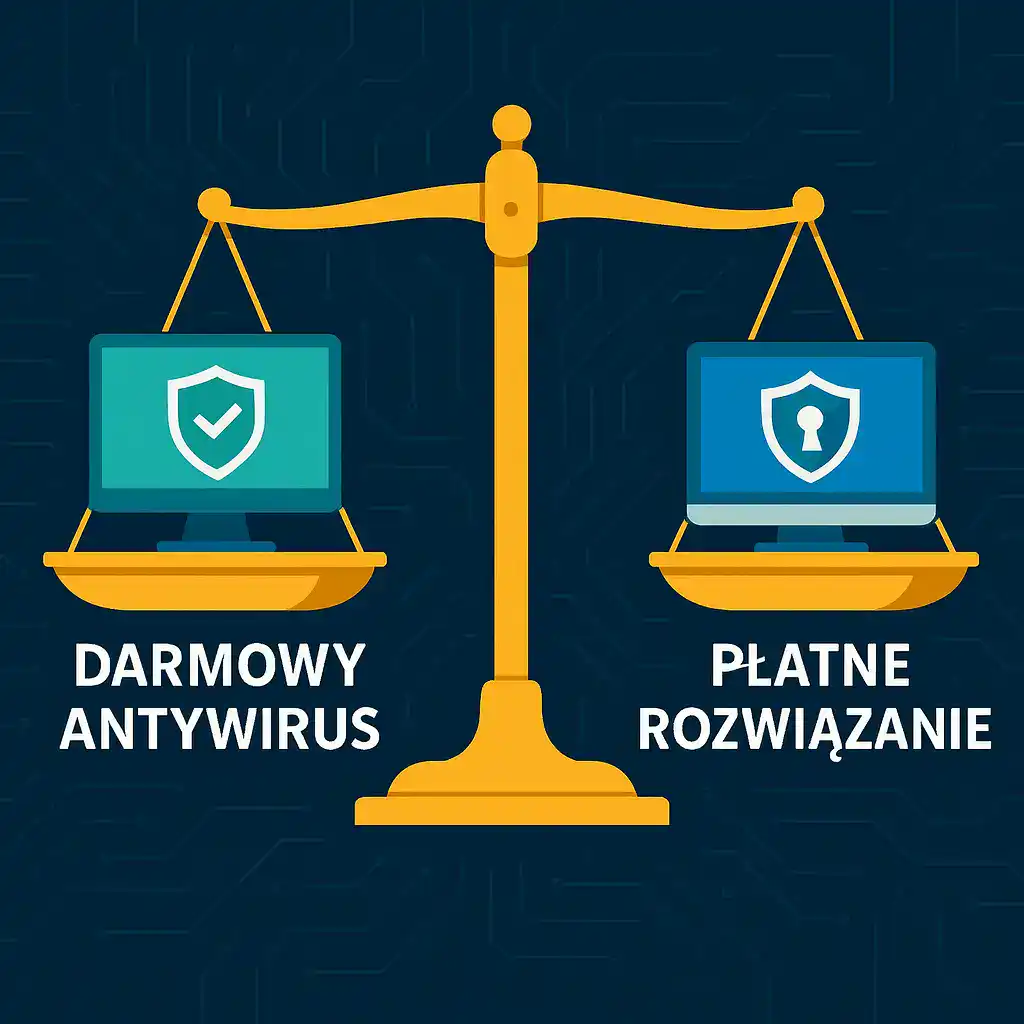
Recommendations according to the needs and size of the company
There's no single "best antivirus" for all companies. The choice depends on the size of the business, the industry, the type of data, and the work style (office, hybrid, fully remote). Protection will differ between a small (1-5 person) accounting firm and a medium-sized manufacturing company with dozens of computer workstations.
Below you will find practical recommendations tailored to different scenarios.
Micro-enterprises (1-5 people)
Characteristic: limited budget, few computers, often no dedicated IT department.
The best solution:
• Microsoft Defender (built into Windows) combined with basic security training (e.g. how to recognize phishing).
• Optional: Norton Antivirus Plus or Bitdefender Antivirus Plus – if you want to add additional features, such as backup or VPN.
Why? For micro-businesses, an expensive management console makes no sense. The most important thing is basic protection and threat awareness.
Small companies (10-20 people)
Characteristic: growing team, customer data, need for more control.
The best solution:
• Bitdefender GravityZone Business Security – center console, great test results, optimal price.
• McAfee Business Protection – comprehensive protection with VPN, dark web monitoring and low system load.
Why? For companies of this size, free antivirus is no longer enough. Centralized management and technical support are crucial to avoid wasting time on manual installations and updates.
Medium-sized companies (20-50 people)
Characteristic: multiple computers, often servers, hybrid operation, audit requirements.
The best solution:
• ESET PROTECT – European manufacturer, lightweight, very good administration tools, works well in server environments.
• Bitdefender GravityZone Business Security Premium – advanced protection with EDR and sandbox functions.
Why? Medium-sized companies are facing the need for GDPR/ISO reporting and compliance. This is a time when responsible IT management is impossible without a dashboard and logs.
Companies with legal regulations and increased risk (finance, medicine, e-commerce)
Characteristic: processing of sensitive data, GDPR requirements, ISO 27001, high risk of cyberattacks.
The best solution:
• Bitdefender GravityZone Enterprise – full EDR/XDR, integration with SIEM systems.
• Norton Small Business – for smaller structures, but with good data protection and backup.
• McAfee+ Advanced – if, in addition to antivirus, you need identity protection and dark web monitoring.
Why? In these industries, the consequences of an attack are particularly serious. Paid solutions with reporting and SLAs are not a luxury, but a necessity.
Section Summary:
• Micro-enterprises → free or cheap paid packages + user training.
• Small businesses → Bitdefender / McAfee – central management and easy operation.
• Medium-sized companies → ESET / Bitdefender Premium – full administration and compliance.
• Sensitive industries → Enterprise-class solutions with EDR/XDR.
If you're unsure which solution is best for your business in Warsaw, Grodzisk, or Legionowo, we can help. IT services and IT consulting for companies, so you save time and at the same time you can be sure that the systems are selected and configured correctly.
Case study – how companies transition from free to paid solutions
We often hear the question: Is paid antivirus really necessary when free solutions are doing better and better? The best answer lies in examples from everyday practice. Below is the story of a company in the Warsaw region, which clearly illustrates why investing in IT security is not a cost, but a real savings.
Initial situation
The service company employing a dozen or so people operated under a hybrid model – some employees worked in the Warsaw office, others remotely from the areas of Ożarów Mazowiecki and Błonie. Until now, they had been using only Microsoft Defender built into Windows. It worked properly, required no additional fees, and at first glance seemed sufficient.
However, the part-time administrator had limited control over what was actually happening on employee computers. The lack of a central console meant that each device had to be checked individually, a task often overlooked in practice.
Security incident
The problem arose when one of the employees received phishing email with an invoice supposedly from a contractor. Clicking on the attachment caused the installation of malware that began encrypting files on the disk.
Microsoft Defender detected some of the activity, but too late – some accounting and HR documents were encrypted. The company had to restore data from backups, which caused several days of delays in customer service. Although financial losses were avoided, the company's reputation suffered.
Change of approach
Following this incident, management decided to investigate the market for paid solutions. Bitdefender GravityZone Business SecurityThe most important elements that convinced the company:
• Center console – full overview of the status of all devices in one place.
• Advanced ransomware protection – technology that blocks encryption processes in real time.
• Reporting – ability to generate logs and reports needed for internal GDPR audits.
• Low system load – the program ran practically unnoticeably for users.
Effects after implementation
• The administrator gained control over all computers – he could remotely force updates, monitor protection status and block suspicious activities.
• Employees have been trained to recognize suspicious messages.
• The company has regained confidence that customer data is adequately protected, and the risk of a serious incident has been significantly reduced.
Conclusions for your company
• Free solutions (e.g. Microsoft Defender) may be sufficient in a micro-enterprise, but with a growing number of employees, the lack of central control becomes a serious risk.
• Paid business antiviruses they provide not only better protection, but above all management and reporting tools – and this is as important in a company as the virus detection mechanism itself.
• The most important thing is to combine technology with procedures – even the best antivirus cannot replace employee training and backups.
In such situations, we help our clients transition from free to paid solutions – from needs analysis, through implementation, to employee training. This allows entrepreneurs to focus on running their business, confident that the issues IT services and IT security are under full control.

Trends and the future of business antiviruses
The IT security market is changing rapidly. What was sufficient just a few years ago may no longer be sufficient today. antivirus for companies It's increasingly becoming just one element of a larger security ecosystem. It's important to understand the direction the industry is taking so you can make informed decisions that will be relevant not only today but also in the years to come.
EDR and XDR solutions – going beyond classic antivirus
EDR (Endpoint Detection and Response) and XDR (Extended Detection and Response) These technologies extend the capabilities of traditional antiviruses. They not only detect malicious files but also:
• analyze the behavior of the system and applications in real time,
• respond automatically to incidents (e.g. by isolating the infected computer from the network),
• they provide a complete history of activities – which is crucial when analyzing an attack.
In practice, this means that the company not only has a "virus blocker" but a tool that responds to real attacks, which significantly increases the level of security.
AI and machine learning in IT security
Modern antiviruses increasingly use artificial intelligence. Algorithms machine learning They can recognize new threats based on their behavior before they are officially classified. This is especially important in combating attacks. zero daythat exploit vulnerabilities not yet patched by software vendors.
Companies from Warsaw, Grodzisk Mazowiecki or Legionowo should pay attention to whether the chosen antivirus has such mechanisms – in practice, this means a much faster response to new types of threats.
Cloud and Microsoft 365 integration
More and more businesses are moving their data and applications to the cloud, such as Microsoft 365 or Azure. Antivirus solutions are adapting to this trend by offering:
• integration with user accounts in Microsoft 365,
• protection of data transferred in OneDrive or SharePoint,
• control of mobile devices within MDM (Mobile Device Management).
This ensures that not only office computers are protected, but also the laptops and smartphones of employees working remotely.
Automatic incident response and reporting
The future of antiviruses is also automationSecurity systems not only block threats, but also make decisions – for example, restoring files from backups, closing suspicious processes, or informing the administrator about the details of the attack.
For companies, this translates into real savings in time and money. Instead of wasting hours on analysis, the company receives a ready-made report and can return to normal operations more quickly.
The growing importance of compliance and audits
In the era of regulations such as GDPR, ISO 27001 or KNF guidelines, reporting and logging of antivirus activities is becoming as important as the protection itself. The trend is that paid solutions increasingly offer ready-made report templates for auditors and inspection bodies. This saves time and facilitates compliance with formal requirements.
Section Summary: The future of business antivirus is moving away from simple antimalware programs towards integrated IT security systemsEDR, AI, automation, and cloud integration are technologies that will become standard in the coming years.
We help our clients not only in choosing a classic antivirus, but also in implementation of modern security solutions, integration with Microsoft 365, and preparation for compliance audits. This allows companies in Warsaw and the surrounding area to operate securely while growing their businesses in a modern way.
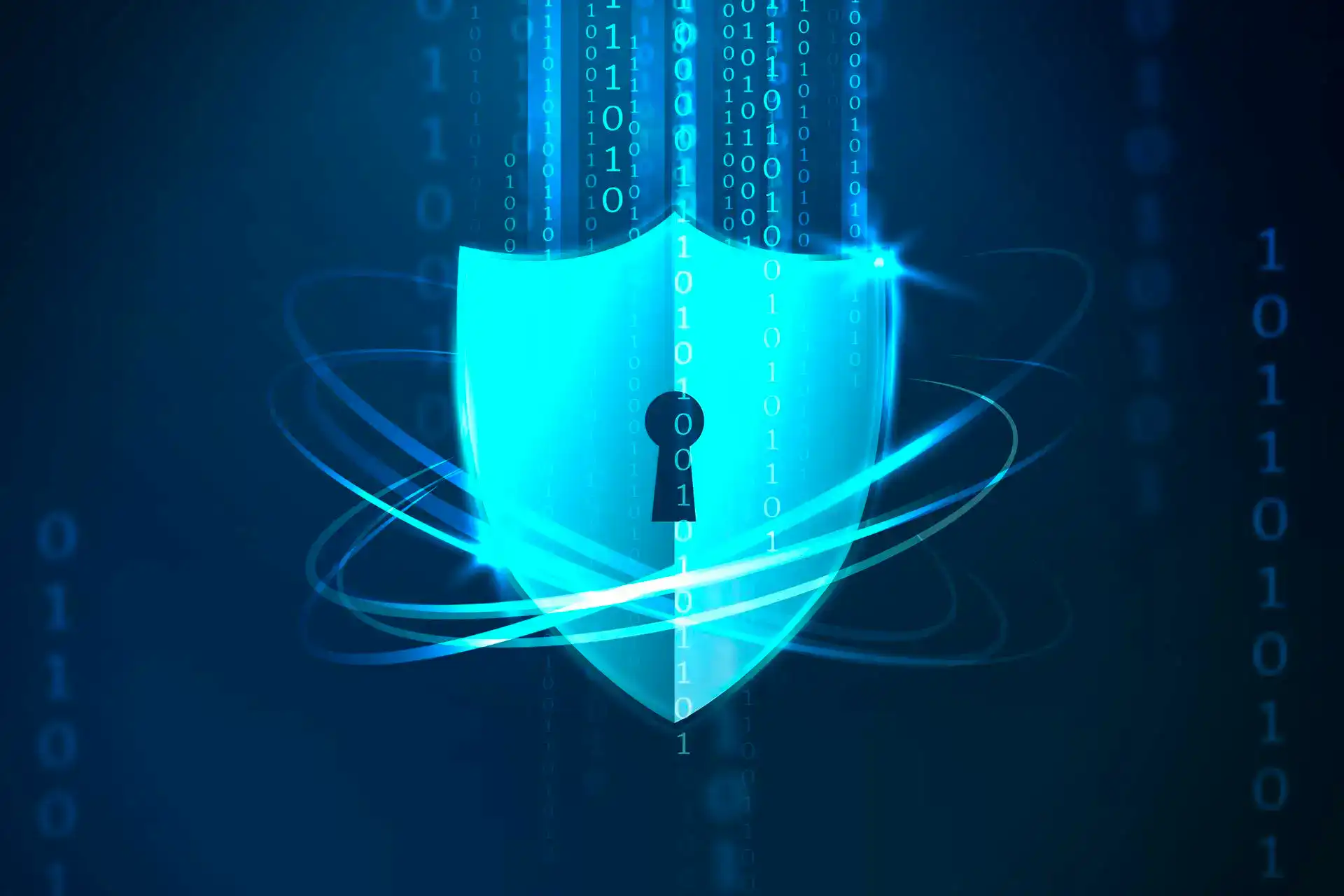
Implementing antivirus in your company – step by step
Choosing the right antivirus is only half the battle. Equally important is its proper implementation, which determines whether the system will actually protect the company or just "pretend" to be secure. We know from experience that many problems stem not from the program itself, but from a lack of configuration and oversight. Therefore, below you will find a practical, step-by-step guide to implementing antivirus software in your company.
Needs and infrastructure audit
To begin with, you need to answer a few key questions:
• How many computers, servers and mobile devices does the company have?
• Do employees use the cloud (e.g. Microsoft 365, Google Workspace)?
• What data is most important to protect (e.g. accounting, HR, customer projects)?
• Are there legal requirements – e.g. GDPR, ISO, industry regulations?
An audit helps avoid situations in which you purchase software licenses that do not meet your actual needs.
Proof of Concept
It's worth testing 1-2 solutions in practice before purchasing. Most vendors offer free trial versions for businesses, usually for 30 days.
• You install the program on several computers in your company.
• You check whether it does not slow down your work and whether it is intuitive to use.
• You are testing the management console – because in practice it will be the administrator's everyday tool.
Purchasing and licensing
When choosing a license, remember a few rules:
• Count the number of devices, not just employees (e.g. desktop + laptop + phone = 3 licenses).
• Consider a longer subscription (2-3 years) – this often means a lower price per device.
• Check whether technical support and updates are included in the price or whether you have to pay for them separately.
Management console configuration
This is a key element in implementing business antivirus solutions. The console allows you to:
• monitor the protection status of all computers,
• send updates and installations remotely,
• generate reports needed for audits,
• set security policies (e.g. blocking pen drives).
Without its configuration, even the best antivirus loses its value.
Integration with other systems
Modern companies from Warsaw, Grodzisk and Legionowo are increasingly using Microsoft 365 or Azure clouds. A good antivirus can integrate with them, protecting not only computers but also:
• email boxes in Outlook,
• files in OneDrive and SharePoint,
• employees' mobile devices.
This approach provides a coherent protection system for the entire company.
Employee training
Even the best system won't work if employees click on every link and attachment. That's why training is a mandatory element of implementation:
• recognizing phishing emails,
• rules for using passwords,
• secure login to company systems.
It is an investment that pays off many times over because it reduces the risk of human error.
Monitoring and maintenance
Implementation doesn't end with installation. For the system to function effectively, it must be regularly monitored:
• monitor alerts from the console,
• update signature databases and software,
• respond to incidents (isolation of devices, restoring data from backup).
Companies that do not have their own IT department can benefit from outsourcing – for example, IT services provided by local partners.
Section Summary: Implementing antivirus software in a company is a process—from needs analysis, through testing and purchasing, to training and ongoing monitoring. Skipping any step increases the risk that the investment will fail.
If you don't want to waste time on testing and configuration yourself, you can use our help. IT services and IT support for companies in Warsaw and the surrounding area – we implement antiviruses, integrate them with other systems and ensure their proper operation on a daily basis.

Frequently asked questions
Is free antivirus enough for your company?
How much does antivirus cost for a company?
Does antivirus slow down your computer?
How often should you update your antivirus?
Does antivirus protect against phishing and fake websites?
What happens if a virus gets through despite the antivirus?
Is one antivirus enough for all devices in the company?
How long does it take to implement antivirus in a company?
Choosing the right business antivirus is a decision that has a direct impact on the security and stability of your company. Throughout this article, you've seen that:
• Free antivirus They are suitable for home use, but do not provide central management, employee control or server and email protection.
• Paid business solutions They offer advanced protection, the ability to integrate with company systems and real technical support – an investment that pays off.
• Selection of protection system depends on the scale of the business – a small company needs flexibility and simplicity, a medium-sized organization needs stability and reports, and larger enterprises need full integration with other IT tools.
• Trends show that the future is protection based on artificial intelligence and response automation, which will further increase the effectiveness of antiviruses.
There is no one-size-fits-all solution – the key is to tailor the system to your company's needs and budget.
What can you do right now?
Assess the real needs of your company – how many employees you have, what devices and what data are most important.
Consider whether your current protection is sufficient – if you are using a free solution, the risk may be too great.
Consult with experts who will advise you on the optimal solution and help you implement it efficiently.
If this topic concerns your company, please contact us.
We can help you with:
• choosing the best antivirus tailored to your industry,
• efficient installation and configuration on all computers and servers,
• integration of protection with other IT systems,
• ongoing IT support so that you can focus on developing your business.
We operate in Warsaw, Ożarów Mazowiecki, Błonie, Grodzisk Mazowiecki, and the surrounding area. Thanks to our quick response and practical approach, you can be sure your business will be safe – today and tomorrow.
Remember: Investing in the right antivirus not only protects against threats, but also guarantees the peace and continuity of your business.


